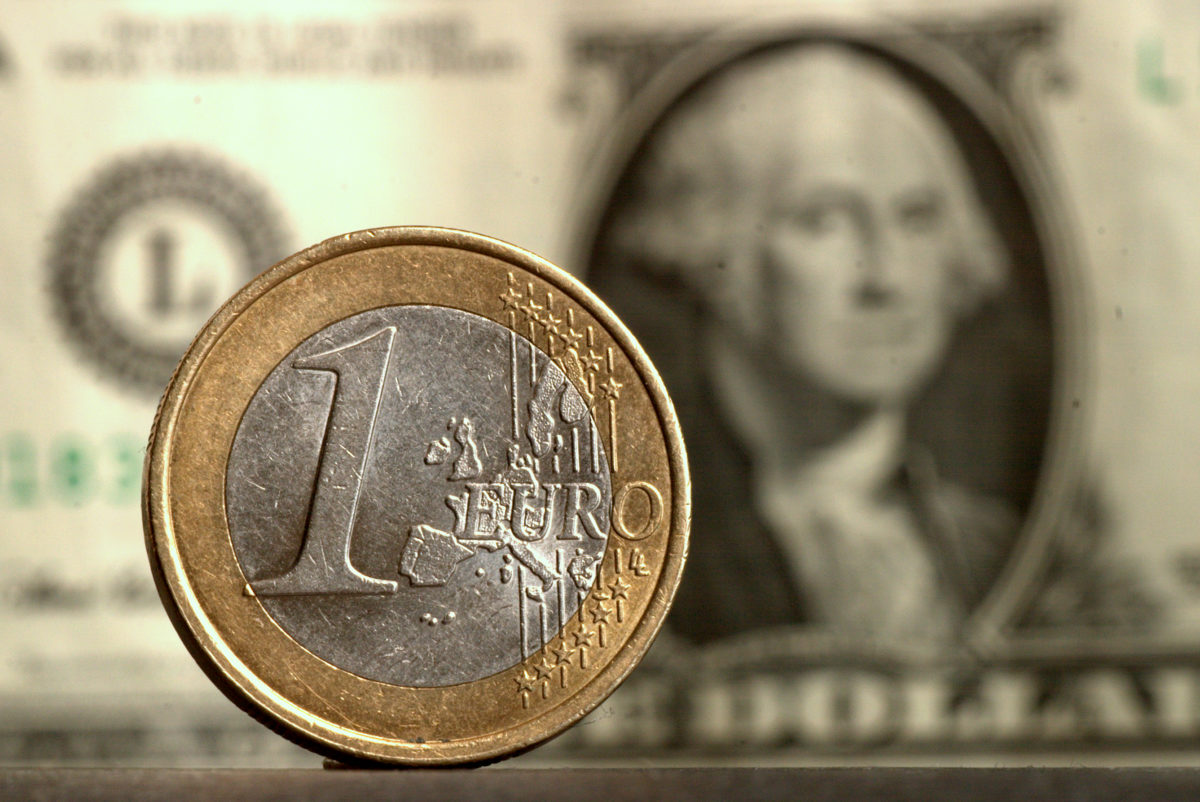In his State of the Union Address this September, EU President Jean-Claude Junker stated how “absurd” it was that Europe pays for 80% of its energy import bills – totaling around €300 billion annually – in US dollars when around only 2% of the imports come from the United States.
“This is why, before the end of the year, the Commission will present initiatives to strengthen the international role of the euro,” he said, adding, “The euro must become the face and the instrument of a new, more sovereign Europe.”
Junker’s comments were made ahead of the European Council and Euro Summit, scheduled to be held this December 13-14.
Yesterday, Commissioner Miguel Arias Cañete made another speech, on the International Role of the Euro in the Field of Energy, where he said the EU has adopted a recommendation “to promote the wider use of the euro in international energy agreements and transactions.”
He said that while the euro, which will be 20 years old in 2019, is stable, widely used and has become the world’s second reserve currency, it is still “underutilized” and could play a much larger role.
“The European Union is the world's largest energy importer: around 90% of the oil it needs and around 70% of its gas needs are imported. The greatest share of energy imports originates from Russia (34%) the Middle East and Africa (33% combined) and Norway (20%),” said Cañete.
He continued, “Our annual energy import bill amounts to €300 billion …. around 85% is paid in US dollars while the US' share in imports is currently only 2%. This means that the vast majority of the long-term contracts of these energy imports are not denominated in euros. This is clearly not sustainable and it does not reflect the role the euro should have worldwide.”
The importance of Iran
The issue is particularly pertinent following the reenaction of Iranian sanctions by U.S. President Donald Trump earlier this year.
In his speech yesterday, Cañete said that the “dominant role of the US dollar has important implications for European companies.” Namely, they are open to exchange rate risks, while the “predominance of trades based on US dollars means that recent unilateral actions by third countries, together with declining support for international rules based governance and trade, can impede or at least make energy trade more difficult.”
He said that strengthening the international role of the euro would help to reduce the risks.
Editor Marian Willuhn reported in August that many solar companies’ plans for Iran were placed in jeopardy following the decision, despite an EU blocking statute.
The statue was imposed on August 7 to protect EU companies doing legitimate business with Iran. The European Commission noted at the time, “…the American sanctions will not be without effect. So, we have the duty, the Commission, and the European Union, to do what we can to protect our European businesses, especially SMEs.”
However, none of those pv magazine spoke to at the time believed it would be particularly useful in protecting either investments or businesses in Iran.
All large companies that handle transactions in U.S. dollars will have to pull out of Iran, a spokesperson for a major European independent power producer (IPP), who spoke on condition of anonymity, told pv magazine.
They added that only small companies with no business interests in the U.S. and no U.S. dollar transactions, would be able to stay. And even for those companies, it will be pivotal that the EU ensures secure financing channels.
James Watson, who until recently was CEO of European PV association SolarPower Europe, concurred that the EU measures would have limited effects. Speaking to pv magazine, he said he believed most European companies were selling their assets, if they had operations in Iran.
He further estimated the financial damages in the loss of opportunity incurred to European solar firms to be somewhere around several hundred million euros – though he did say that was an early rough estimate.
Three recommendations
Overall, the EU has made three concrete proposals to achieve its goal:
- The wider use of the euro in international agreements and non-binding instruments related to energy. The Commission will systematically draw the attention of the Member States to the use of the euro as part of its role in the framework of the Intergovernmental Agreements (IGAs) Decision adopted in 2017, it says;
- The wider use of the euro in energy-related transactions; and
- The wider use of the euro by companies providing financial services for energy related projects and transactions.
This content is protected by copyright and may not be reused. If you want to cooperate with us and would like to reuse some of our content, please contact: editors@pv-magazine.com.




By submitting this form you agree to pv magazine using your data for the purposes of publishing your comment.
Your personal data will only be disclosed or otherwise transmitted to third parties for the purposes of spam filtering or if this is necessary for technical maintenance of the website. Any other transfer to third parties will not take place unless this is justified on the basis of applicable data protection regulations or if pv magazine is legally obliged to do so.
You may revoke this consent at any time with effect for the future, in which case your personal data will be deleted immediately. Otherwise, your data will be deleted if pv magazine has processed your request or the purpose of data storage is fulfilled.
Further information on data privacy can be found in our Data Protection Policy.